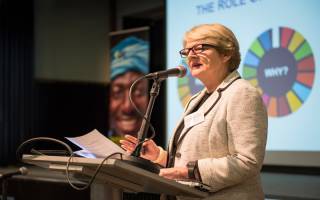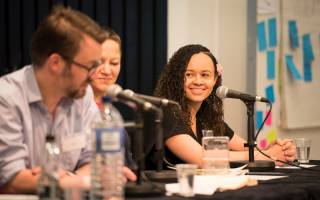Producing "PaniDesh" - a reflection on the IGP/LIDC hackathon
4 March 2019
Akanksha Gupta, participant of the IGP/LIDC event "SDGeneration: Hacking Solutions for the UN SDGs", writes a blog for the IGP describing her experience creating "PaniDesh"
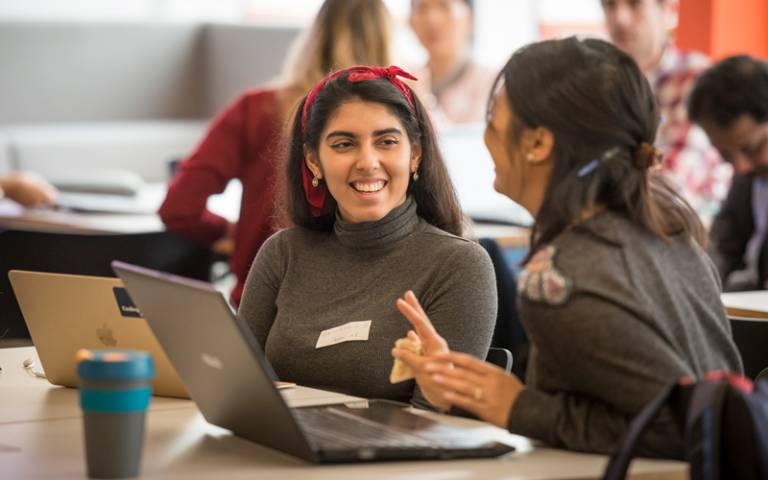
As a medical student at Imperial College, my exposure to sustainability, international affairs and global trends was very limited. This was before I discovered the book Factfulness by Dr Hans Rosling. Pitched as an evidence-backed therapy book intended to improve our opinion of the world's state, and in doing so our state of mind, it had me hooked after the first chapter. This instilled in me a wonder of the world as it is today and how we, as a collective, can strive to improve it.
Having attended one hackathon in Germany, I truly believe that the invigorating and fast paced nature of the environment is a highly effective way to foster innovation and exciting ideas. So, when I noticed the Facebook event pop up titled "SDGeneration: Hacking Solutions for the UN SDGs", I took a quick peek at my calendar in all its emptiness, and immediately bought myself a ticket.
After initially going to the wrong place and in doing so spending two hours travelling from West London to East London, I arrived at the venue a little demoralised and frazzled. However, upon listening to the inspirational introductions by Darshita Gillies and Jacqueline McGlade, I was rearing to get going.
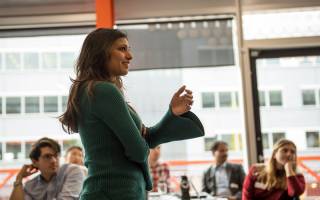
The team I was allocated to was composed of Cindy, studying Mathematics at Cambridge, Mary-Ann studying Education and International Development at UCL, Rainey, founder of WomenInMe, and Vasiliki, studying Environmental Policy at Imperial. A diverse, eclectic mix of oestrogen.
The morning started with all groups having been assigned the task of researching London as a city, gathering UN data and consequently deciphering how well it was sticking to the SDG goals 2, 4, 8 and 11; Zero Hunger, Quality Education, Decent Work and Economic Growth, and Sustainable Cities and Communities respectively. Bogged down by the overwhelming dearth of data, an hour and a half flew by before we had to present our initiative. Or, at this point for us, lack of one. We had spread ourselves so thin, that our presentation was more a review of existing data as opposed to an innovative solution.
Post-lunch, we were motivated to change tack. Having decided upon Dhaka, Bangladesh as our target, we moved swiftly on, choosing to focus on SDG 11, and explore the interlinkages it had with the other three SDGs. A quick scan of the literature and we knew that sanitation and water quality was an area which could be greatly benefited. Vasiliki's knowledge of the microfinancing loans, Mary-ann's eloquency, Cindy's impeccable research skills into the local culture, and Rainey's encouraging decision-making all led to PaniDesh. PaniDesh is a three-pronged solution, incorporating microfinancing, well-mapping, and a Care GRoup model to help deliver a mindset change within the communities, and help drive to a creative, realistic, sustainable shift in the current hierarchal norms as seen in slums.
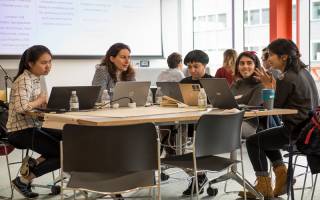
Our communal excitement with regards to the initiative was tangible. We all felt quite strongly for it, and it was difficult to believe we had merely spent two and a half hours on it. We presented, and were fortunate enough to win, considering the great competition. This led to the hugely gratifying experience the following day of us presenting our initiative at the IGP and LIDC joint-conference "SDGeneration: A Citizen Science Movement", conference at Amnesty International.
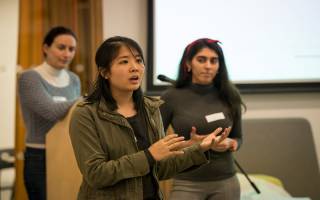
All in all, it was a wonderful experience, reaffirming my interest in global policy and sustainability, and I am thankful to IGP, LIDC and Maanch for organising such a great event.
Photos (c) Ellie Pinney
 Close
Close


